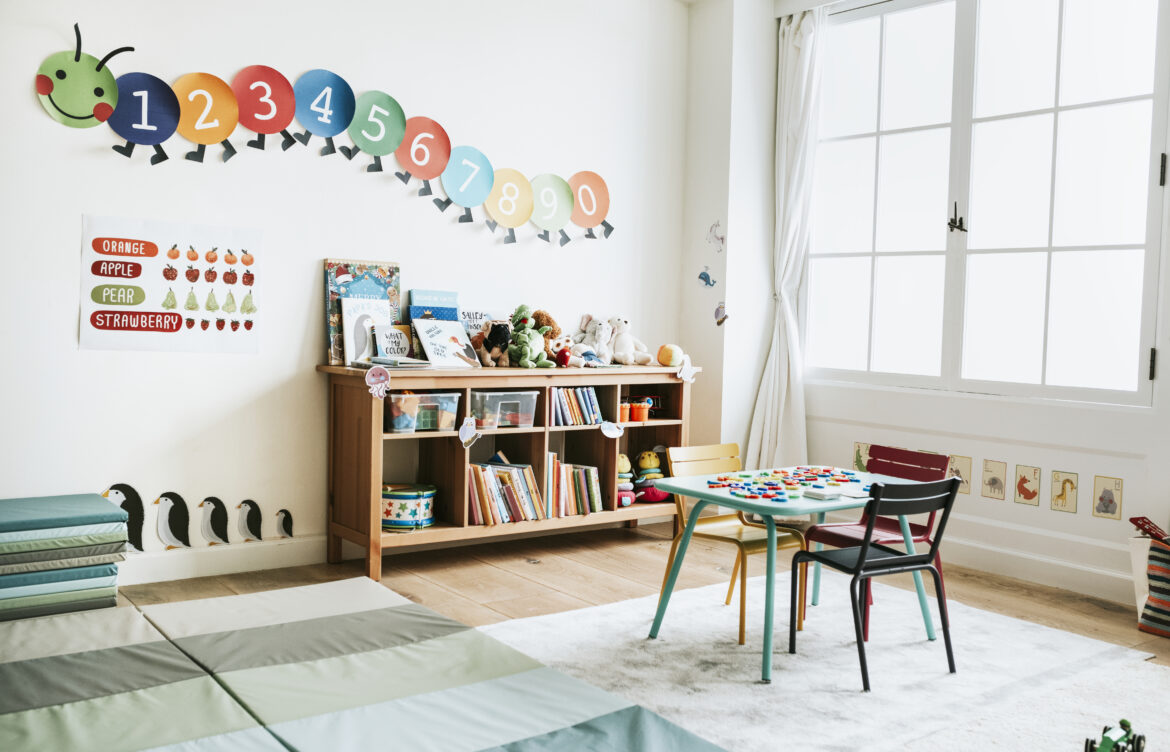
The Social-Emotional Benefits of Montessori
Image by rawpixel.com on Freepik
When most people think about Montessori education, they picture those beautiful wooden materials and kids working independently on the floor. But here’s what’s really exciting about this approach: it’s creating emotionally intelligent, socially confident children who know how to navigate relationships and handle their feelings. The Montessori method isn’t just about academic learning, it’s fundamentally designed around supporting children’s social and emotional development, and through thoughtful Montessori behavior management and carefully structured environments, kids learn skills that will serve them for life.
Building Genuine Self-Confidence
One of the most striking things you’ll notice in a Montessori classroom is how confident the children are. This isn’t the artificial kind of confidence that comes from constant praise, but a deep, genuine self-assurance that develops when kids are trusted to make choices and follow through on their decisions.
Children in Montessori environments choose their own work, set their own pace, and often assess their own progress. When a four-year-old successfully completes a challenging puzzle or helps a younger friend tie their shoes, they experience real accomplishment, which builds an internal sense of capability that external validation simply can’t match.
The mixed-age classroom structure also plays a huge role here. Older children naturally become mentors and leaders, while younger ones have lots of role models to learn from. Everyone gets to experience both giving and receiving help, which creates a balanced sense of self-worth.
Developing Emotional Intelligence
Montessori classrooms are designed to help children understand and manage their emotions. The peaceful, orderly environment itself teaches emotional regulation – when everything has a place and there’s a rhythm to the day, children feel secure and can focus on learning rather than managing chaos, which can be an issue in traditional classroom settings if teachers don’t manage them properly.
Teachers in Montessori settings are trained to acknowledge children’s feelings without rushing to fix or dismiss them. If a child is frustrated with a difficult task, validation helps children learn to recognize and name their emotions, which is the first step in managing them effectively.
The three-hour work cycle that’s central to Montessori also supports emotional development. Children learn to persist through challenges, take breaks when needed, and experience the satisfaction of deep focus. These are skills that transfer directly to emotional resilience in other areas of life.
Fostering Natural Social Skills
Perhaps most remarkably, Montessori environments create naturally cooperative, kind children, and who doesn’t want kind kids? Because competition is de-emphasized and collaboration is woven into daily life, kids develop authentic social skills rather than learned behaviors designed to please adults.
The mixed-age grouping means children are constantly practicing different social roles. They learn empathy by helping younger children, leadership by guiding other kids, and humility by learning from older students. Grace and courtesy lessons, which are formal presentations about how to interact respectfully with others, give children concrete tools for social situations.
Conflict resolution is also handled differently in Montessori settings.
Rather than having adults immediately step in to solve problems, children are guided to work through disagreements themselves. They learn to express their needs, listen to others, and find mutually acceptable solutions.
The result?
Children who are genuinely comfortable with themselves and others, equipped with emotional tools that will serve them throughout their lives. Amazing!

 Angela Labombard is the visionary founder and lead copywriter of Mummy Vibes, a blog dedicated to the multifaceted journey of motherhood. With a passion for storytelling and a deep understanding of the parenting landscape, Angela has created a platform that resonates with mothers across the globe. Mummy Vibes is more than just a blog; it’s a community where mothers can celebrate their joys, share their struggles, and find practical advice for navigating the complexities of parenthood. Angela’s commitment to empowering mothers shines through every post, whether it’s offering tips for sleepless nights or celebrating the achievements of inspiring moms. Her ability to connect with her audience on both the joys and challenges of motherhood has made Mummy Vibes a go-to resource for parents seeking support and inspiration on their parenting journey.
Angela Labombard is the visionary founder and lead copywriter of Mummy Vibes, a blog dedicated to the multifaceted journey of motherhood. With a passion for storytelling and a deep understanding of the parenting landscape, Angela has created a platform that resonates with mothers across the globe. Mummy Vibes is more than just a blog; it’s a community where mothers can celebrate their joys, share their struggles, and find practical advice for navigating the complexities of parenthood. Angela’s commitment to empowering mothers shines through every post, whether it’s offering tips for sleepless nights or celebrating the achievements of inspiring moms. Her ability to connect with her audience on both the joys and challenges of motherhood has made Mummy Vibes a go-to resource for parents seeking support and inspiration on their parenting journey.
